|
Music Is The Healing Force Of The Universe The Inconsistency of |
|
|
||||||||||||||||
|
June 1 2019
Hat Hut correction Last month I speculated that the next Ayler release from Hat Hut will be a repackaging of their last two Ayler CDs, Copenhagen Live 1964 (hatOLOGY 665) and European Radio Studio Recordings 1964 (hatOLOGY 678). Seems I was wrong and it is a rerelease of two of the 1964 Debut recordings, Spirits and Ghosts. Ernst Nebhuth sent me this item from The Wire. * Humphrey Lyttelton If you followed the link above to The Wire you will have seen a nice photo of the Jimmy Giuffre Trio (plus two wives) from 1961. A session from their 1961 European tour will be another release from Hat Hut in their new „ezz-thetics“ series. There was the briefest of clips of the Giuffre Trio on BBC Four the other week in a programme devoted to the Jazz 625 jazz series of the 1960s - Jazz 625 Live: For One Night Only. Not that Giuffre got a mention and there was no information given about whether his whole performance had survived, for this is 2019 and we have to be protected from the facts (and Jeremy Corbyn of course). Instead we got a lot of current jazz and a bit with Charlie Watts, and an item with the presenters looking at LP covers. After a sequence devoted to Joe Harriott (with a two second clip of the great man) they did admit that, that was all that had survived of his performance on Jazz 625. Which brings me to Humphrey Lyttelton and the infamous Ayler concert at the London School of Economics in November 1966 for the BBC’s follow-up to Jazz 625, Jazz Goes To College. Sean Wilkie came across an interview with Humphrey Lyttelton (presenter of both series) in an issue of Jazz Review from May, 2001 (Issue 20, pp.24-27) in which he was asked about the Ayler concert. Sean kindly transcribed the relevant section, with an introductory note: [Richard Cook is interviewing Humphrey Lyttelton and after talking about his first recordings, his move to Parlophone, his accidental hit with Bad Penny Blues and its ‘influence’ on The Beatles, they muse about the split between traditional jazz and popular music. Humph thinks that jazz is unique in western culture for appealing simultaneously to the brain as well as to the heart and feet. In response to Lester Young, he imagines, some will dance, some will go ‘ohhh, did you hear that?’ and some will be thinking about his linear improvisation: “All at the same time”. (pp.26-27) The (immediately) following is all from p.27.] [RC]: Having been witness to so much of it, is he optimistic that jazz will carry on? HL: “I’m encouraged to be optimistic about it, because from observing it through the years … it’s like a worm. If you put a spade through a worm, the two halves continue in their own way. Jazz has a capacity to appear, at the sharp end, to appear to be heading for the rocks. If you take the avant-garde of the 60s, the freak-out end, it occurred to me at the time that the other quality of jazz, of everyone having their own voice – once you get to extended screaming at the upper end of the harmonic range, how can you tell one person screaming from another? And after you’ve screamed, where do you go from there? In the modern music now, one of the most dated elements today is the freak-out. I was listening to Tubby Hayes’ 100 Per Cent Proof album, a roaring big band thing – and for no apparent reason there’s a huge section where the big band is just freaking out, as if it was something you had to do then. When I was introducing BBC Jazz Club, if there was a band like, dare I say, Tony Oxley’s or John Stevens’, I’d sneak round and look at the music, and it was all things like electrical circuits and drawn symbols, but quite often you’d see a little section in the circuit which said “freak out”. “I introduced Albert Ayler’s band at the LSE for a BBC recording. An odd occasion altogether, very strange, but it’s a pity the BBC didn’t show it. There was a thing about his band then which I sometimes thought was assumed … a sort of aggression and anger. The violin player, a Belgian classical violinist, he was the nearest to a complete caricature. He walked on stage swearing and he walked off stage swearing. It created an atmosphere where the producer, Terry Henebery, appeared to be going into the jaws of death if he asked them for anything. He wanted them to do two minutes fore and aft for the credits to run under, and when Albert finished his set – Ronnie Scott and Roland Kirk were there watching and their comments were interesting - Terry asked them to do another two minutes, and Albert went on objecting to it, and eventually he turned to the band, and said, OK, for two minutes we go crazy. And they did two minutes of madness. I thought then, well … emotion didn’t have much to do with it. But a lot of that stuff I’ve taken on board, or at least I don’t reject it out of hand. It’s difficult for someone with my background in music to get drawn into it, but I listen to a lot of contemporary things.” [Then the discussion moves back to Humph’s own playing and music.] Sean also added this comment: “Difficult to say that it adds anything – indeed, a couple of the comments are better understood reading the book extract alongside them – but it revisits the event from another angle and adds the tantalising note that Roland Kirk was present at the recording and passed comment on Ayler’s music (although we’re not told what he said!).” The ‘book extract’ Sean refers to is from Humphrey Lyttelton’s Take It From The Top, available on the L.S.E. concert page. For some entertaining background to Jazz 625, I’d recommend this interview with the show’s producer, Terry Henebery, on the Transdiffusion site. * Terry Day’s Sweet Albert This should really be kept for the ‘And finally ...’ slot but since Sean sent it to me along with the above, so I thought I’d just shove it here. More information on discogs.
|
|
Bibliography From the ... well, moving on. Last September I mentioned that John Gray’s Fire Music: a bibliography of the new Jazz, 1959-1990, first published in 1991, was due to be updated. The new version, Creative Improvised Music: An International Bibliography of the Jazz Avant-Garde, 1959–Present, has now been published by the African Diaspora Press. * Discography Dirk Goedeking let me know about an odd ESP cassette box set emanating from China which includes Spirits Rejoice. Released this year by Old Heaven Books, Dirk wonders if this is the first official Chinese release of an Albert Ayler album. The discogs site has the following explanation of how it came to pass: ‘In October 2018, the manager of ESP-Disk', Steve Holtje was invited by the 8th OCT-LOFT Jazz Festival to give a lecture titled 55 Years of Nurturing Avant-Garde and Outsider Music: ESP- DISK's Perpetual Revolution, in Shenzhen, China. During this event, Tu Fei, the curator of the festival, as well as the co-owner of Old Heaven Books, reached an agreement with Steve on further co-operations. |
|||||
 |
|||||
 |
|||||
 |
|||||
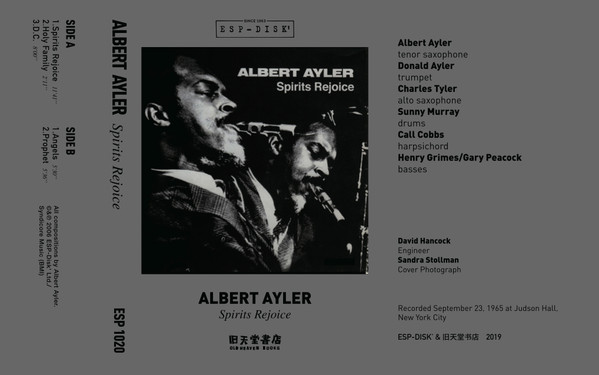 |
|||||
|
Dirk also came across this ‘mixtape’ from a while back. Such things bother my OCD, so I usually ignore them but this one has a few nice tracks and a faux-Blue Note cover - but is that Albert? I don’t think that’s Albert. |
|||||
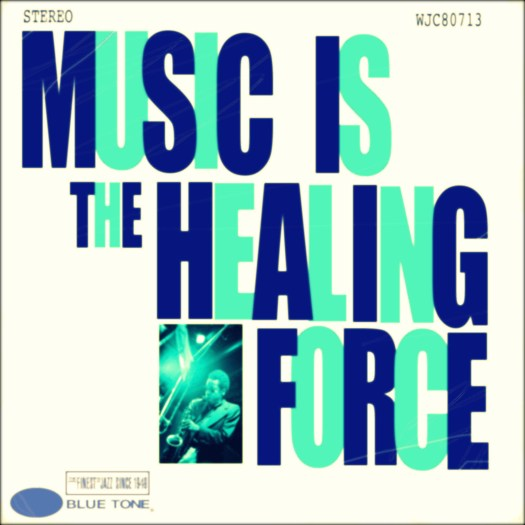 |
|||||
|
Dolphy again Just following up on that speculation about whether Dolphy ever played with Albert Ayler I indulged in back in February, I received the following email from Mike: “In reference to Dolphy and Ayler playing together, the John Coltrane Reference has a passage on p 299 where Marzette Watts suggests that Dolphy and Ayler, together, sat in for Coltrane when he was ill. Likely, a Half Note performance in 1964. ... Certainly an exciting possibility!” |
|||||
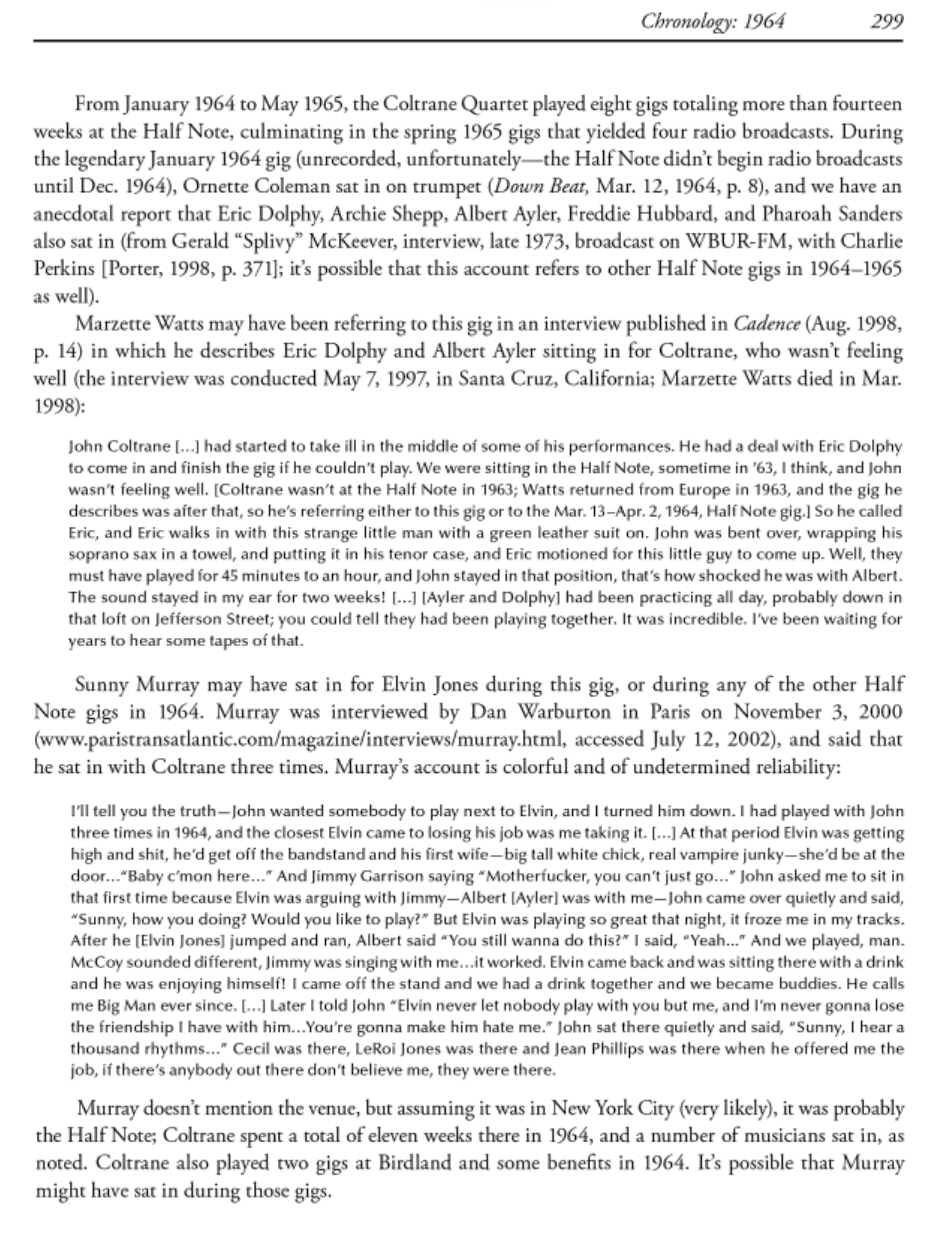 |
|
The 4th Annual Albert Ayler Award From Steve Tintweiss: “On May 30 th the 4th annual Albert Ayler Award n Jazz Performance, Improvization and Composition to outstanding graduating Master of Music students in Jazz at the Aaron Copland School of Music at Queens College (City University of New York) was presented at commencement, along with other awards and scholarships. The recipients are drummer Peter Evans, trumpeter David DiTrapani, and trombonist Justus Heher. I established and sponsored this for a span of eighteen years since 2016.” |
|||||
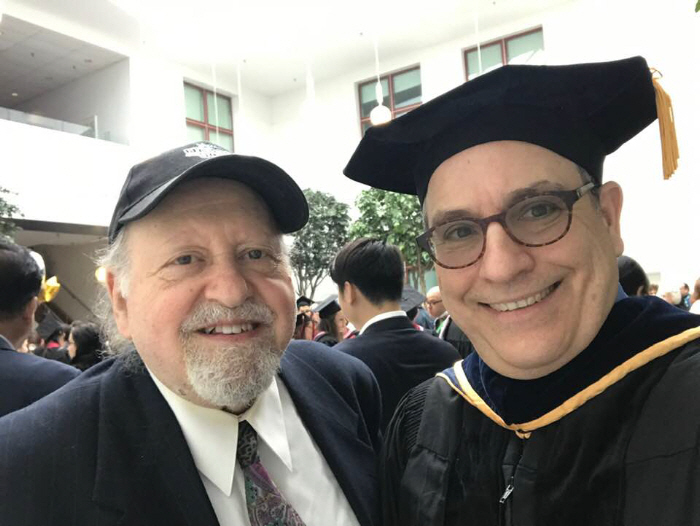 |
|||||
|
Steve Tintweiss with Professor Ed Smaldone of Aaron Copland School of Music at Queens College City U of NY where the 4th Annual Albert Ayler Award was bestowed on three talented musicians graduating with MM Degrees in Jazz Studies. * |
|||||
|
Flying Saucers and other news from Cleveland Richard Koloda posted a couple of things in the Ayler facebook group which I thought worth repeating here. The first gives an idea of what we can expect when he gets his biography of the Ayler brothers published: “As many of you know, I have been editing my Albert Ayler biography. Warning: it is about 500 pages, and I believe you will find something new on every third page. It is a bit frustrating as I get no responses from copyright holders. For example, Downbeat magazine (as well as Jazz Times) never responded to my copyright inquiries I sent out in November last year. Nor did the local Plain Dealer,—and I can promise you some things I have obtained will floor you, such as school id photos of Al and Don, a photo of them at a playground back in 1949 (they are not identified—but their cousin id’d them), Albert’s army records, his marriage license, and social security application, as well as Don’s psychiatric report from when he was found not competent. Also you will find a paternity suit brought against Albert back in 1958. There is also the possibility of a complete run of the 1966 La Cave concerts (as well as something that some find fascinating, i.e., a series of UFO sightings in Cleveland that coincided with the La Cave dates). I even have traced down his golf scores when he was a teenager. Also there is another Ayler photograph from the school newspaper (again, he is not identified)—still hunting down his high school yearbook.” And here’s a link to a Cleveland Scene article about those flying saucers, with this explanation from Richard: “I believe this article will explain where Ayler claimed he saw the flying saucers. This was the same weekend as the La Cave concert. Ironically, the Mantua police chased the UFO down Route 5—into Pennsylvania. In 2012 I moved out to that area—and there are some older residents who claim that they actually saw the UFOs as well.” * The other biography And sticking with the Ayler facebook group, Dean Westerfield posted this preliminary drawing from his graphic novel approach to the life of Albert Ayler: |
|||||
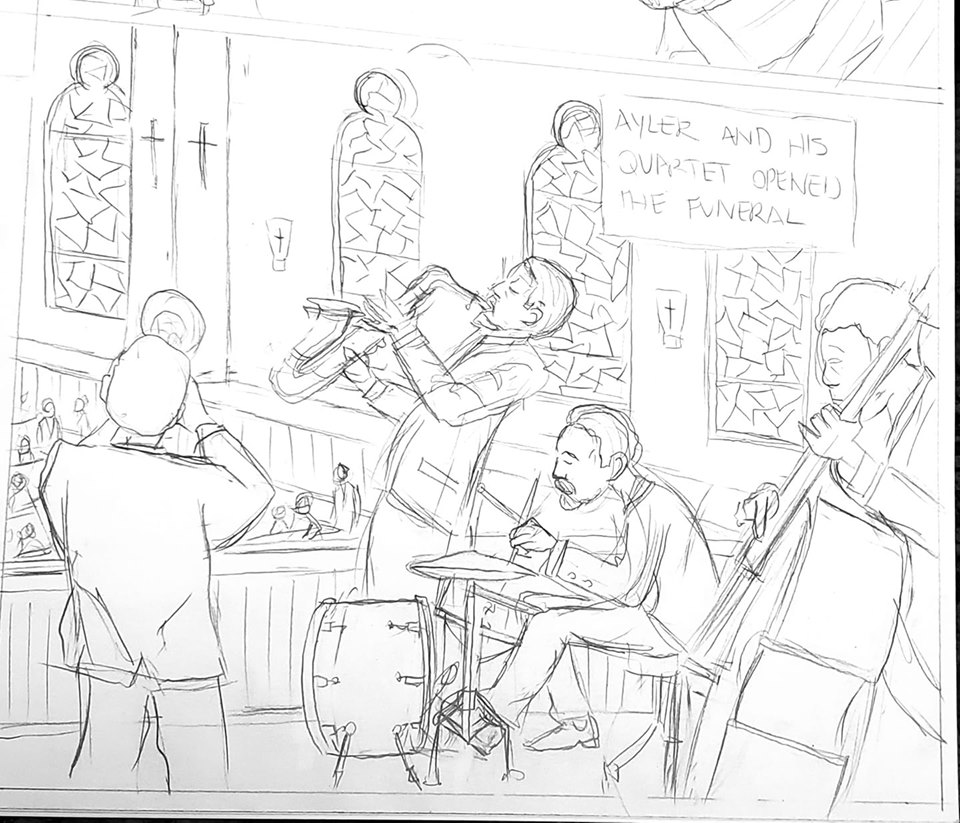 |
|
Youtube |
|||||||||||||||||||||||||||||||||||||||
|
Also on youtube this month: A couple of guitar versions of Ayler tunes (in case you want to see what those crazy kids are getting up to these days). ‘Holy Family’ from the band, Grex (kicks in around 4:26) and this is ‘Truth Is Marching In’ from Garrett Gleason:
|
|||||||||||||||||||||||||||||||||||||||
|
Then there are a couple of tracks from albums. ‘My Name Was Albert Ayler’ by Forlate from the album, There Shall Be Time No Longer. And then this, which deserves a little more than a passing mention since it’s a version ‘Love Flower’ but taken from an album celebrating the Count Basie LP, Afrique. So it’s a version of Count Basie’s version of Albert Ayler’s tune, ‘Love Flower’.
|
|||||||||||||||||||||||||||||||||||||||
|
More information on Afrique (revisiting Afrique of Count Basie & Oliver Nelson) is available at Ouch! Records, including an article by Jacques Denis. |
|||||||||||||||||||||||||||||||||||||||
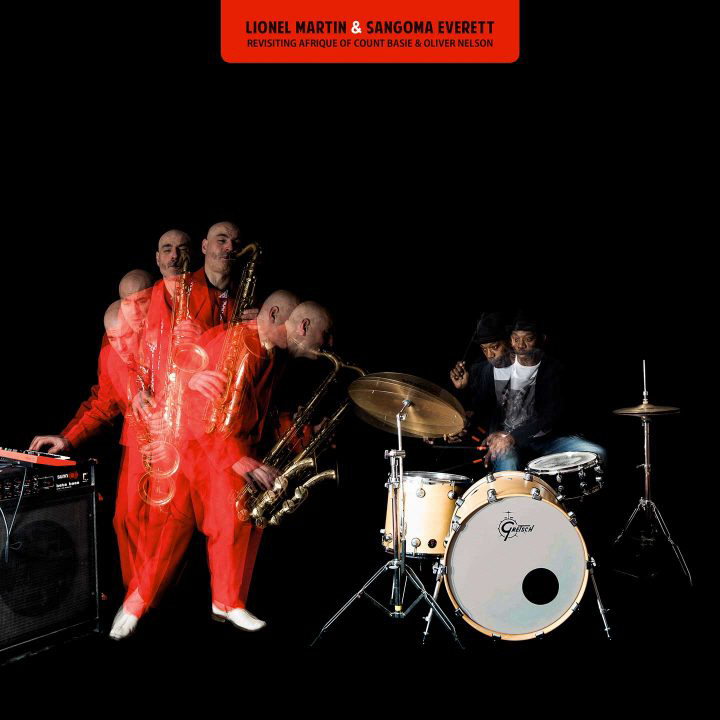 |
|||||||||||||||||||||||||||||||||||||||
|
What’s New January - May 2019 is now in the Archives. ***
July 1 2019
Recorded in Stockholm, October 25th, 1962 Is the obfuscatory title of a new vinyl release of the two volumes of The First Recordings (pace Something Different!!!!!) from the Italian label, Alternative Fox. Perhaps it is a nod to the Hathut repackaging of the early European recordings of Albert Ayler, perhaps not. Further information here. |
|||||||||||||||||||||||||||||||||||||||
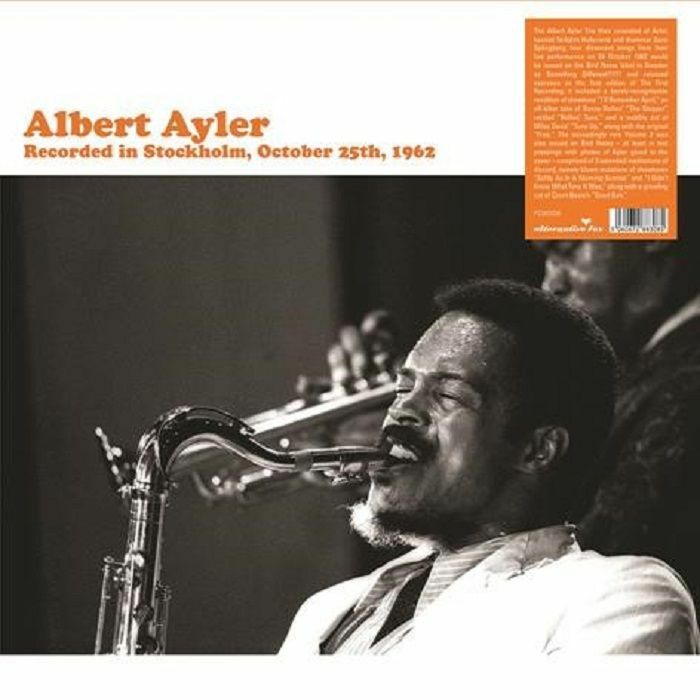 |
|||||||||||||||||||||||||||||||||||||||
|
Discographical Matters Dirk Goedeking let me know about the above, as well as few more Ayler oddities, such as: A Shandar cassette version of Nuits De La Fondation Maeght, Volume 2: |
|||||||||||||||||||||||||||||||||||||||
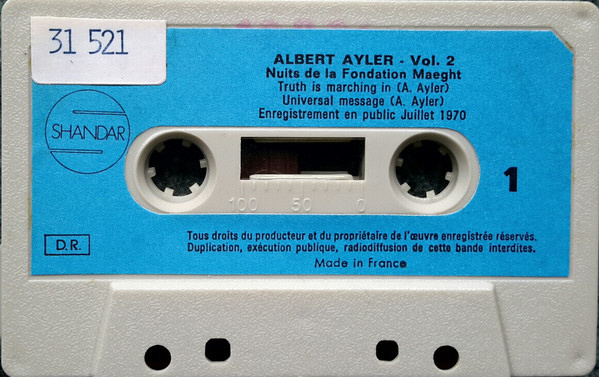 |
|||||||||||||||||||||||||||||||||||||||
|
The B Side of the ESP 45” single backed with Ornette Coleman’s ‘Sadness’. Complete with jukebox label (I wonder how many fights that caused): |
|||||||||||||||||||||||||||||||||||||||
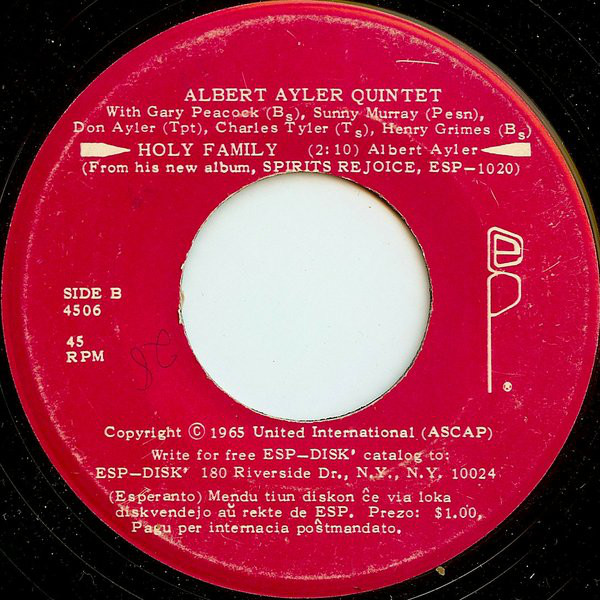 |
 |
||||||||||||||||||||||||||||||||||||||
|
And another of those weird mp3 compilations of the Complete Discography of Albert Ayler. The one mentioned before originated in Russia - this one’s from Brazil. Click the pictures for the full effect: |
|||||||||||||||||||||||||||||||||||||||
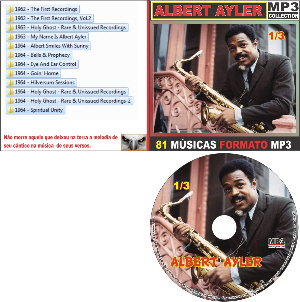 |
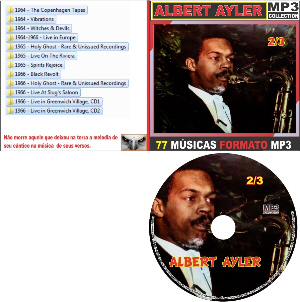 |
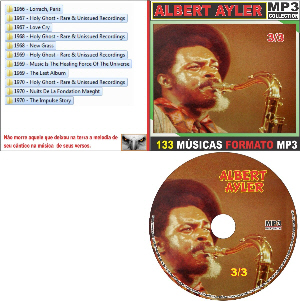 |
|||||||||||||||||||||||||||||||||||||
|
Goodbye New Grass Sticking with matters discographical, I’m not sure whether this is old news, since it happened in 2008, but a recent article in The New York Times Magazine, “The Day the Music Burned” by Jody Rosen (published 11th June) has sparked interest elsewhere, including an item on the BBC’s Breakfast programme on 26th June. On 1st June, 2008, a fire at the Universal Studios in Hollywood destroyed an estimated half a million master tapes, including those belonging to the Impulse label - which is where Albert Ayler comes in. According to one of the articles picking up on the original NYT article, by Kevin Reed on the World Socialist Web Site: ‘Impulse! Records: The American jazz record company was founded in 1960 by ABC-Paramount Records and was also sold to MCA in the late 1970s and became part of Universal’s jazz portfolio in the 1990s. The majority of John Coltrane’s Impulse! masters were lost along with those of Duke Ellington, Count Basie, Coleman Hawkins, Dizzy Gillespie, Max Roach, Art Blakey, Sonny Rollins, Charles Mingus, Ornette Coleman, Alice Coltrane, Sun Ra, Albert Ayler, Pharoah Sanders and other jazz greats. Among the rock ’n’ roll Impulse! artist masters lost are Buddy Holly along with the masters of hits such as Bill Haley and His Comets’ “Rock Around the Clock,” Jackie Brenston and His Delta Cats’ “Rocket 88,” Bo Diddley’s “Bo Diddley/I’m A Man,” Etta James’ “At Last,” the Kingsmen’s “Louie Louie” and the Impressions’ “People Get Ready.”’ Another article on Digital Music News lists the artists whose work was destroyed. Of course, in Ayler’s case, there has been a special CD edition of Love Cry with three alternate takes, and the double CD, Live In Greenwich Village: The Complete Impulse Recordings, contained one previously unreleased track, but the ‘Late Impulse Ayler LPs’ - New Grass, Music Is The Healing Force of the Universe and The Last Album - have never been given the ‘special edition’ treatment, and now, never will. * Farewell Ayler Records I came across a record review on The Free Jazz Collective site by Nick Ostrum, which began with: “There have been signs for some time now that Ayler Records was winding down its activities. With the three albums reviewed here, it seems the label will be ending its 20-year run. Originally a Swedish imprint specializing in live American and Scandinavian releases in the classic, clunky free jazz tradition (early releases were also graced with the mesmerizing abstract expressionist artwork of Ãke Bjurhamn), it relocated to France and the very capable hands of Stéphane Berland in 2009, who reinvigorated the label with a newfound, largely (but hardly exclusively) Franco-centric eclecticism. Over the course of its existence, Ayler Records produced my first Peter Brötzmann album, my second Albert Ayler and Joelle Leandre, my first Arthur Doyle, Henry Grimes, Axel Dörner, Assif Tsahar, Charles Gayle, Arthur Rhames, Jimmy Lyons, Martin Küchen, and so many others. Maybe I came to this music relatively late, but Ayler Records was nevertheless my entrepôt. And, I imagine I am not the only listener with such fond, formative associations with the label.” The only Albert Ayler CD actually released by Ayler Records was The Copenhagen Tapes and I remember back in the very early days of this site, Jan Ström, the founder of Ayler Records, was very helpful and informative about Albert’s time in Scandinavia. * The Village Voice There’s an exhibition of photographs by Fred W. McDarrah of The Village Voice at the Museum of the City of New York, and an article about the exhibition by R. C. Baker, ‘The First Contact Sheet of the Counterculture’ included this: |
|||||||||||||||||||||||||||||||||||||||
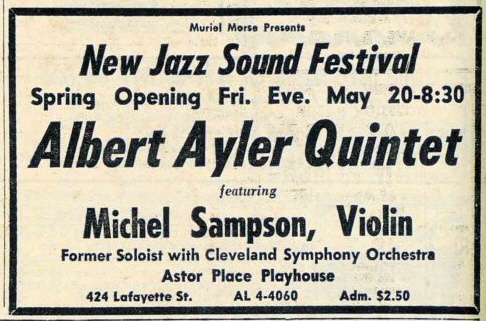 |
|||||||||||||||||||||||||||||||||||||||
|
It’s from page 24 of The Village Voice of 19th May, 1966. According to the ‘Sightings’ chapter of the Holy Ghost book, the personnel for the concert was: Albert Ayler (ts), Don Ayler (t), Michel Samson (vln), Lewis Worrell (b) and Ronald Shannon Jackson (d). * Dance No, not ‘The Elizabethan Phrasing of the Late Albert Ayler’ this time, but the more minimally titled, ‘Ayler’, which is a new dance piece by Jennifer Owen, premiered in Kansas City by the Moving Arts company on 21st June. A review of the performance by Libby Hanssen on the KC Studio site has this description of the piece: ‘Jennifer Owen’s “Ayler” found inspiration in a piece by KC-based, nationally known saxophonist Matt Otto, a tribute to the late avant-garde saxophonist Albert Ayler. To Otto’s rich tone, Owen created a dialogue for dancers Kaleena Burks, Liang Fu, and Taryn Meija, phrases of wide swinging gestures, little shuffling kicks that fit her style so well, and impressive lifts by Fu.’ * Alan Silva at 80 There’s a review on the Arteidolia site by Pierre Crépon of Alan Silva’s 80th birthday concert which took place in Paris in May. Pierre also has a couple of articles concerning Teruto Soejima’s recently published book, Free Jazz In Japan: A Personal History: ‘Omnidirectional Projection: Teruto Soejima and Japanese Free Jazz’ in the June issue of Point of Departure, and on The Wire’s site Pierre’s choice of a playlist to accompany the book. * More from France Alan Silva was one of the contributors to the two Daniel Caux radio programmes devoted to Albert Ayler which were originally broadcast in 1971. Alain Chauvat emailed to say that France Culture broadcast the two programmes again on 11th and 12th June this year. Both programmes are available on the France Culture site or can be downloaded here: My Name Is Albert Ayler. Part 1: Spiritual Unity. My Name Is Albert Ayler. Part 2: Love Cry. A rundown of the contents of each broadcast is also available on this site. * More from Japan The youtube roundup is a bit sparse this month but I feel I should at least mention Alexis Dombrovszky’s rendition on tenor saxophone of the Prelude to Bach’s Cello Suite No. 1. And here’s a rather atmospheric version of ‘Ghosts’.
|
|||||||||||||||||||||||||||||||||||||||
|
August 1 2019
The People’s Forum “Jazz & Self Determination” #5: Albert Ayler On Saturday, 13th July, 2019 - Albert Ayler’s 83rd birthday - an event was held at The People’s Forum in New York in the ‘Jazz & Self Determination’ series, organised by Ras Moshe Burnett and featuring Steve Tintweiss and Joel Freedman. |
|||||||||||||||||||||||||||||||||||||||
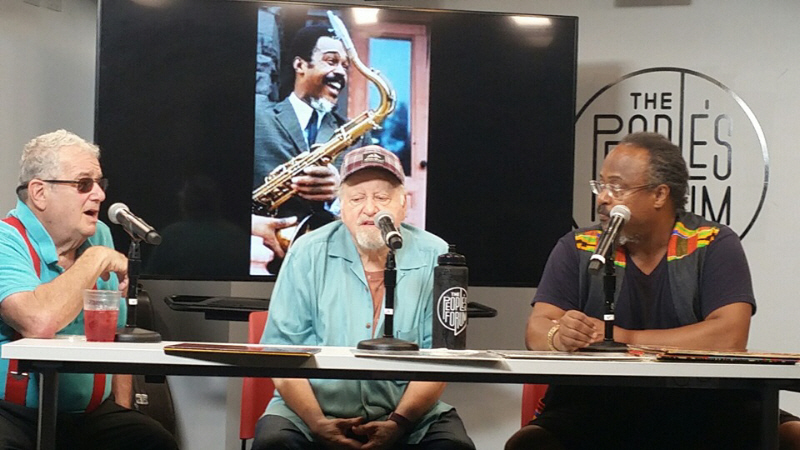 |
|||||||||||||||||||||||||||||||||||||||
|
Photos by Susan Yung. |
|||||||||||||||||||||||||||||||||||||||
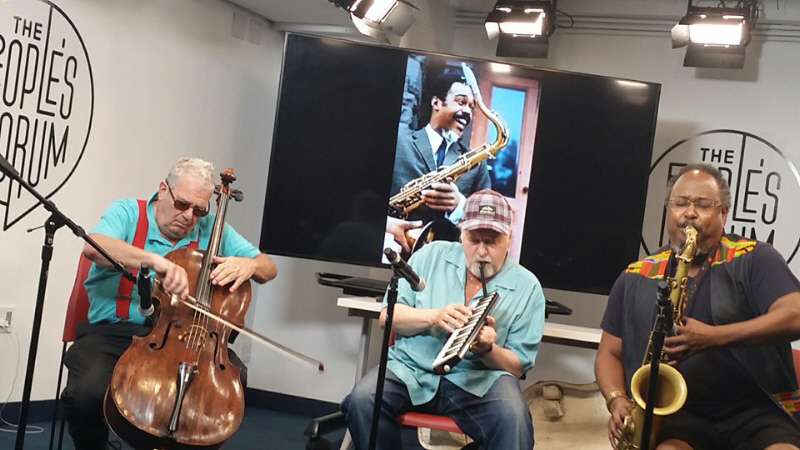 |
|||||||||||||||||||||||||||||||||||||||
|
The whole session is available on youtube. It runs for 2 hours 44 minutes, but there is some fascinating stuff in there about the early years of Free Jazz, and Joel Freedman’s account of his first meeting with Albert is classic. Around the 1:52:00 mark, Joel Freedman takes up his cello and the three men make some music. I have to thank Steve Tintweiss for letting me know about this.
|
|||||||||||||||||||||||||||||||||||||||
|
Joe Rigby Some sad news from Roy Morris - tenor saxophonist Joe Rigby has passed away. I couldn’t find any obituaries online but I did come across an interview on Matt Lavelle’s No Sound Left Behind site, which I don’t think I’ve mentioned before, and, of course, there’s more information about Joe Rigby’s music on the Homeboy Music site. |
|||||||||||||||||||||||||||||||||||||||
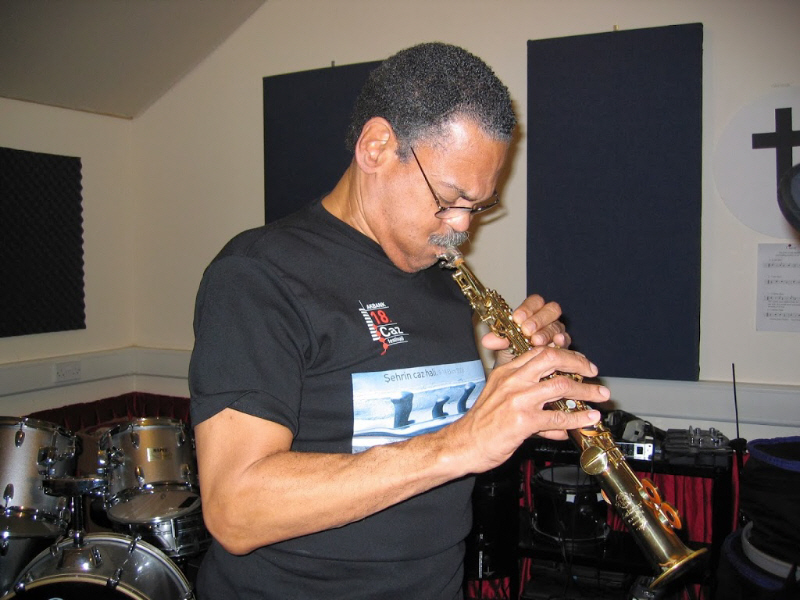 |
|||||||||||||||||||||||||||||||||||||||
|
Albert’s first gig? This popped up on the Ayler facebook page, courtesy of Daniel Richard. It’s a cutting from the Cleveland Call & Post of 14th April, 1945. At first I thought I must have it, but on checking the Concerts section, the earliest one I had listed was from December, 1945. |
|||||||||||||||||||||||||||||||||||||||
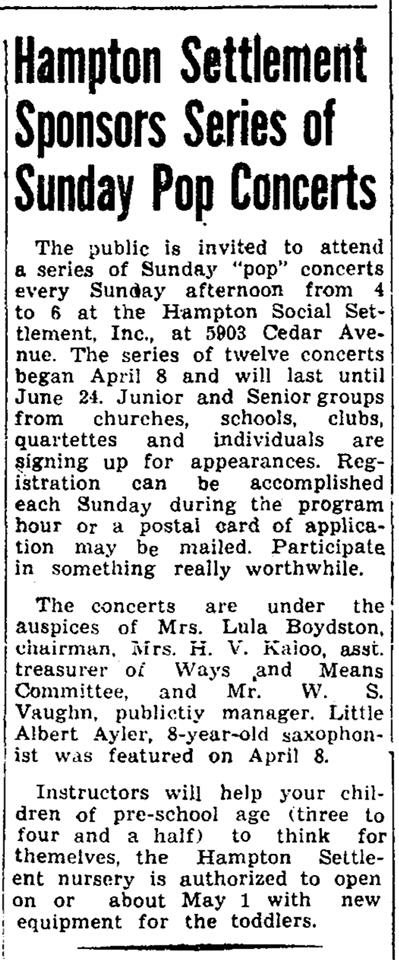 |
|||||||||||||||||||||||||||||||||||||||
|
From Cleveland to Paris - the many sides of Bobby Few ‘Pierre Crépon marks 50 years since the jazz pianist’s arrival in France with a career-spanning playlist’ on The Wire site. There are fifteen tracks from Few’s varied career (including Ayler’s ‘Water Music’) and Pierre sent this additional information: Booker Ervin Albert Ayler Noah Howard Frank Wright Quartet Bobby Few Bobby Few Sunny Murray Quintet Bobby Few Steve Lacy/Brion Gysin Byron Pope Bobby Few Trio Bobby Few Bobby Few & Avram Fefer Quartet Sonny Simmons & Bobby Few Bobby Few * Youtube roundup 1. Leroy Jenkins’ 1978 album, The Legend of Ai Glatson, which includes the track, ‘Albert Ayler (His Life Was Too Short)’. 2. Matt Laferty on the relationship between Ayler and Coltrane, and ‘Ghosts’. 3. This month’s version of ‘Ghosts’.
|
|||||||||||||||||||||||||||||||||||||||
|
4. Noise Enters Music - a lecture by Byrne Power. This looked like it might be interesting, but at one and a quarter hours (and with the People’s Forum one to finish) I thought I’d just skip to the Albert Ayler bit. Which turned out to be annoying. It’s that thing, that stupid cloth-eared acceptance of ‘received opinion’ which seeps through into everything these days. So, he takes ‘Masonic Inborn’ from Music Is The Healing Force ... as his text and then makes snide little comments about it. So we end up with Ayler being dismissed once again as difficult to listen to and a bit extreme, because he’s heard somewhere that Ayler is difficult to listen to and a bit extreme so he’ll use him to get a few laughs. * A postcard from Germany Dirk Goedeking sent me a couple of items this month, a postcard of the Ole Brask photo of the Ayler group outside Slugs’, from German ebay. Classy but a bit confusing if you sent that from your holiday. |
|||||||||||||||||||||||||||||||||||||||
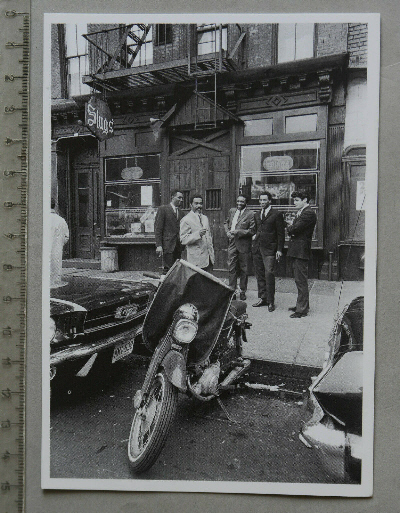 |
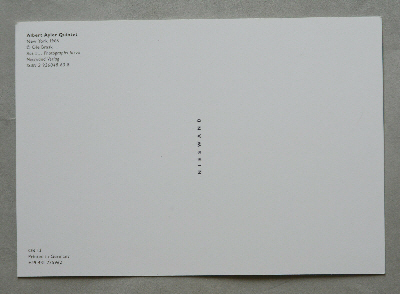 |
||||||||||||||||||||||||||||||||||||||
|
And an animated gif: |
|||||||||||||||||||||||||||||||||||||||
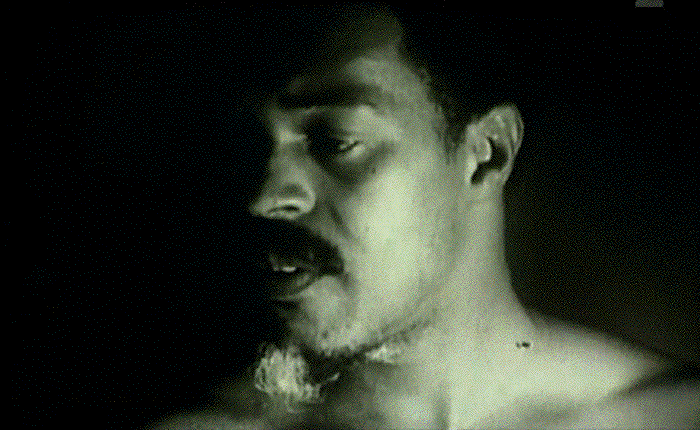 |
|||||||||||||||||||||||||||||||||||||||
|
Which reminded me that I made an animated gif once. It was for another website (hence the product placement) which I abandoned when I thought I’d got an appointment in Samarra. But, despite it having nothing at all to do with Albert Ayler, I thought I’d resurrect it here since in this age of rampant demagoguery it seems oddly apposite.
|
|||||||||||||||||||||||||||||||||||||||
|
September 1 2019
Albert Ayler Quartets 1964 Spirits To Ghosts Revisited Back in May I mentioned this new Albert Ayler release from a revivified Hat Hut Records and speculated as to the contents. Then an article in The Wire stated that it would be a re-release of the two albums Ayler made for the Debut label, Spirits (aka Witches and Devils) and Ghosts (aka Vibrations), which turns out to be correct. |
|||||||||||||||||||||||||||||||||||||||
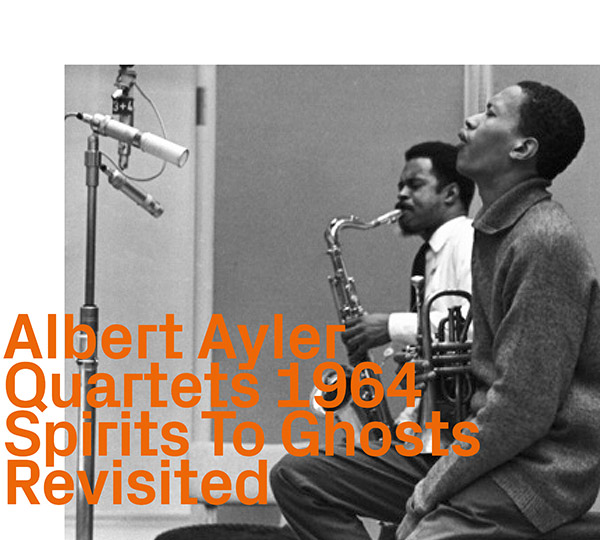 |
|||||||||||||||||||||||||||||||||||||||
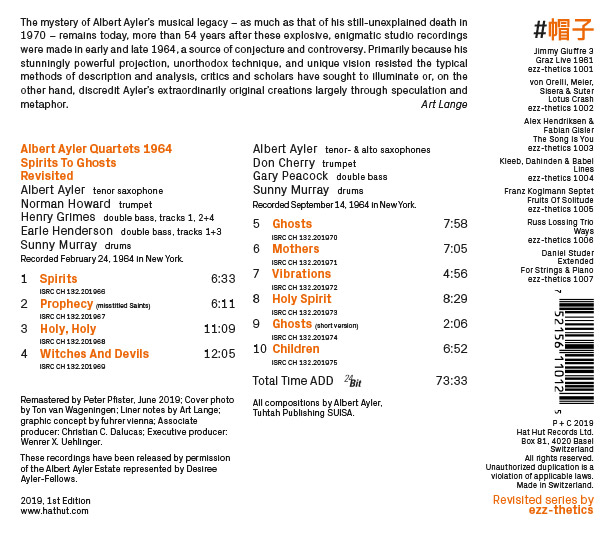 |
|||||||||||||||||||||||||||||||||||||||
|
The most notable difference in this release is the change in the original running order of the tracks for both albums. The track order for Spirits was 1. Witches And Devils 2. Spirits 3. Holy Holy 4. Saints (now retitled Prophecy). The track order for Ghosts was 1. Ghosts (short version) 2. Children 3. Holy Spirit 4. Ghosts (long version) 5. Vibrations 6. Mothers. I can’t see any reason for doing this unless this is the original running order on the master tapes. The other slight niggle is the fact that Norman Howard still doesn’t get his composer credit for ‘Witches and Devils’, but I guess its legally easier this way. Anyway, shouldn’t criticise too much, should just welcome Hat Hut back, and appreciate having a new, remastered, authorised CD version of two of Albert Ayler’s classic recordings. * Joe Rigby (3/9/1940 - 16/7/2019) Following up last month’s sad news from Roy Morris about the death of Joe Rigby, there’s a short obituary on the Wire site. * |
|||||||||||||||||||||||||||||||||||||||
|
Tributes and Versions Italian trio, Ayler’s Mood - Pasquale Innarella (saxes), Danilo Gallo (bass) Ermanno Baron (drums) - have an album out, called Combat Joy, on the Aut Records label in October. There’s a trailer on youtube:
|
|||||||||||||||||||||||||||||||||||||||
|
There’s also a review on the ‘all-Nordic’ website, Salt Peanuts* (the * seems to be part of the site’s name, so don’t bother looking for a footnote). Some interesting videos on there too.
Again Comes The Rising Of The Sun ... Is the title of a live album recorded by John Dikeman (ts) and Aleksandar Škorić (d) at the Ring Ring festival in Belgrade, Serbia on May 7, 2017. It features the title track (from The Last Album) and ‘Ghosts’ (from all the others). It’s available on bandcamp, from the Doek RAW label. It’s also available on youtube:
|
|||||||||||||||||||||||||||||||||||||||
|
The Brimstone Trumpet: A Life of Donald Ayler Alfie Cooke let me know about this one. It’s an album dedicated to Don Ayler by Experimental Broadcast Unit on the Kaja-Disk label, and it’s available on bandcamp. |
|||||||||||||||||||||||||||||||||||||||
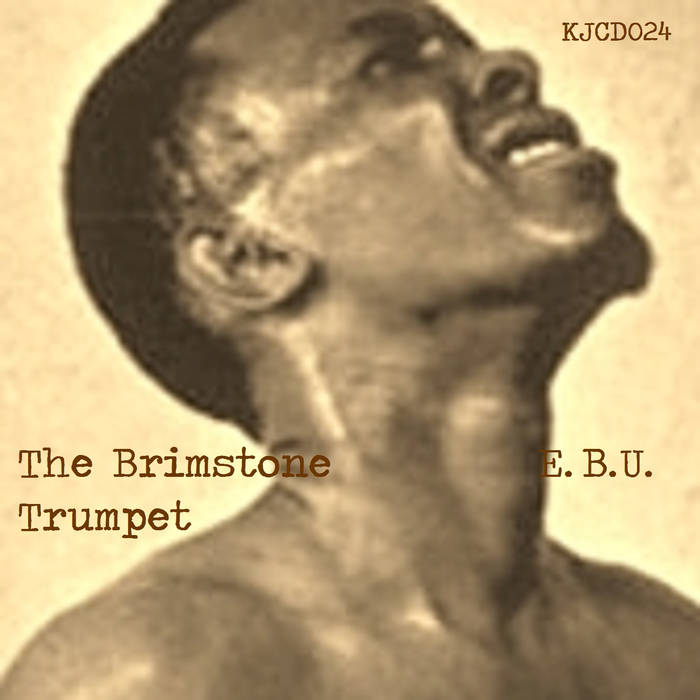 |
|||||||||||||||||||||||||||||||||||||||
|
One Day Here are two tracks from this tribute CD to Albert Ayler (Volume 54 of The Pure Music Series) by Any Temple In Egypt: |
|||||||||||||||||||||||||||||||||||||||
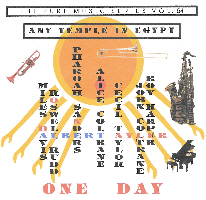 |
|||||||||||||||||||||||||||||||||||||||
|
And while we’re on the subject ... There’s a track on a 1994 album - Pipe Dreams by Figure 8 (Rova x 4) - called ‘Head Count (for Albert Ayler and Pete Townshend)’ which I’ve had listed in the Tributes section for quite a while and has always intrigued me. The album is now on youtube.
|
|||||||||||||||||||||||||||||||||||||||
|
And for an explanation of the connection, see the sleevenotes on the discogs site. Staying with youtube, a couple of concerts by Marc Ribot’s Spiritual Unity are available. One, the quartet version featuring Roy Campbell on trumpet, from 2005, I have linked to before, but checking back in the Archives, that link has died so, here it is again.
|
|||||||||||||||||||||||||||||||||||||||
|
And a trio version recorded at the 2011 D’Jazz Nevers Festival.
|
|||||||||||||||||||||||||||||||||||||||
|
Talking of broken links - Dirk Goedeking sent me a link to Brian Glasser’s interview with Shabaka Hutchings about “the album that changed his life, Spiritual Unity” on the Jazzwise site, which rang a tiny bell. It’s a reposting from November, 2016, but, checking back I found another dead one, so here it is again. While we’re trawling the past, here’s another old interviews, this one from 2004, with Jim Jarmusch from Filmmaker Magazine. It’s the first time online, so I haven’t linked to it before, and I would direct you to Mr. Jarmusch’s answer to the final question: “What’s exciting you right now?” And, to close this rather wimpling section, a couple of bands whose Ayler connection is a little more tenuous. Gard Nilssen’s Acoustic Unity have an album out whose title does nod in the direction of Ornette Coleman - To Whom Who Buys A Record - but whose name and line-up seems to invoke the spirit of the Albert Ayler. Plenty of information and youtube clips on the band’s website and a review of the new album at theartsdesk.com. |
|||||||||||||||||||||||||||||||||||||||
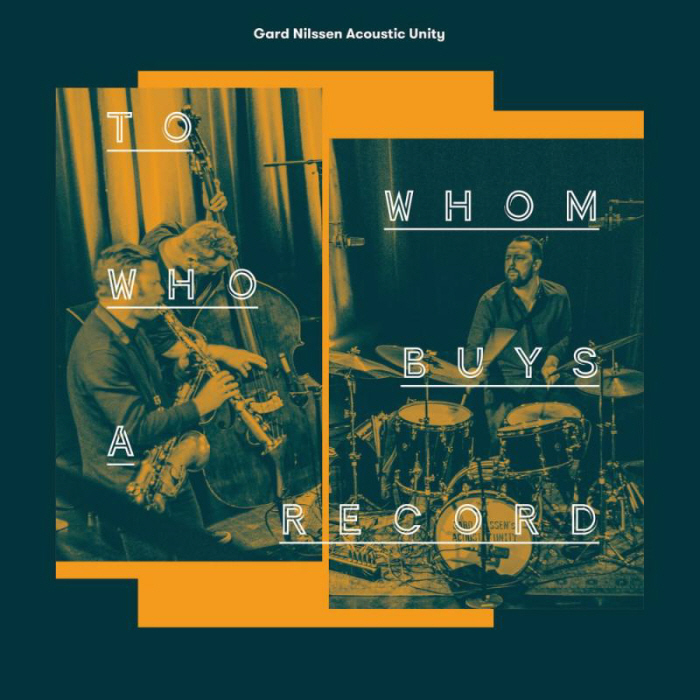 |
|||||||||||||||||||||||||||||||||||||||
|
Finally, a very tentative connection and I would let it go, except it involves a bassoon, and there are too few bassoons in jazz. On the Cleveland Scene site there’s an old review of a concert in a bowling alley by another trio, featuring a bassoonist, organised by the ‘New Ghosts’ people. Here’s the blurb: “New Ghosts, a local group devoted to promoting improvised music in the tradition of Cleveland saxophonist Albert Ayler, is behind this event that features bassoonist Dana Jessen, guitarist Shane Parish and guitarist/vocalist Wendy Eisenberg. The show will have three sets in total, including a solo bassoon set from Jessen, a duo between Eisenberg and Parish, and a group improvisation with all three musicians. The three musicians come from very different backgrounds, but they share a background in the improvised music associated with Albert Ayler’s legacy.” And here’s a picture. |
|||||||||||||||||||||||||||||||||||||||
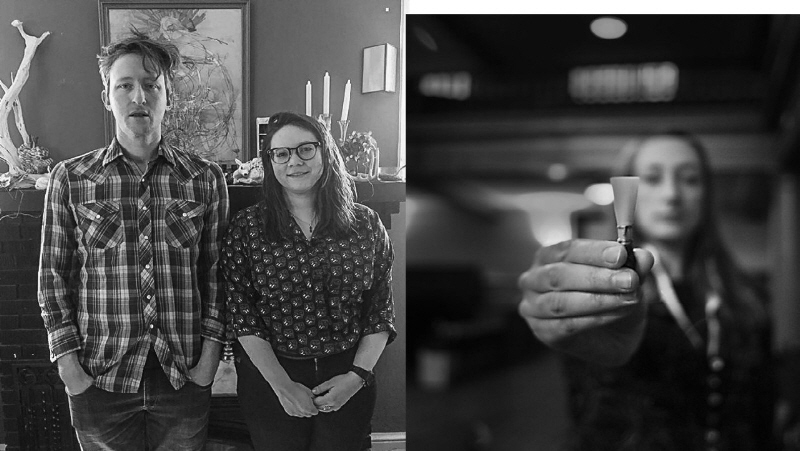 |
|||||||||||||||||||||||||||||||||||||||
|
Masonic Inborn, part 1 Has anybody ever come up with an explanation for that title? Perhaps now. Although as we roll up one trouser leg and step into the shadowy world of Freemasonry, do not expect enlightenment, since it’s all in French. Jazz et Franc-Maçonnerie, une histoire occultée (‘Jazz and Freemasonry, a hidden story’) is a book by Yves Rodde-Migdal investigating the links between black jazz musicians and Prince Hall Freemasonry. Difficult to tell whether Albert gets a mention in the book, at 80 pages I should think it’s more an introduction to the subject rather than an exhaustive study, but he is prominent in a review on Le Jazzophone site (here translated into google English): ‘When saxophonist Albert Ayler arrives in the studio in August 1969 armed with a bagpipe, for the recording of the album "Music Is the Healing Force of the Universe", there is reason to ask questions about this choice somewhat incongruous and perfectly unheard of in jazz. Is he suffering from acute poly-instrumentitis? Avant-gardism mad? Be that as it may, no one doubts the direct reference to Freemasonry of the Ancient and Accepted Scottish Rite (AASR), which the saxophonist evokes with this instrument symbolically reminiscent of Scotland. The title of the track, "Masonic Inborn", which could be translated as "intrinsically Masonic", nevertheless offers a valuable clue. The only explicit reference to Freemasonry in the history of jazz, it nevertheless reveals a reality still largely unknown today. We could be initiated to jazz, we would still ignore that a large part of its creators were members of the American black masonry, called "Prince Hall".’ Jazz et Franc-Maçonnerie, une histoire occultée is published by Cépaduès Editions and there is a video introduction to the book on the RFI site. I used to be into all this Masonry stuff, blamed them for Jack the Ripper and all the ills of the world. Now, I think I’d be happy to find out there was some kind of guiding intelligence behind all the chaos, no matter how malign. |
|||||||||||||||||||||||||||||||||||||||
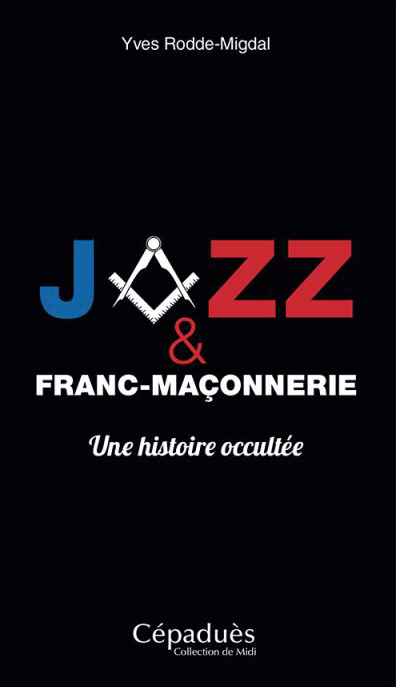 |
|||||||||||||||||||||||||||||||||||||||
|
And finally . . . Dirk Goedeking sent me this link. |
|||||||||||||||||||||||||||||||||||||||
|
*** News from 2004 (January - June) 2004 (July - December) 2005 (January - May) 2005 (June - December) 2010 (January - June) 2010 (July - December) 2011 (January - May) 2011 (June - September) 2011 (October - December) 2012 (January - May) 2012 (June - December) 2013 (January - June) 2013 (July - September) 2013 (October - December) 2014 (January - June) 2014 (July - December) 2015 (January - May) 2015 (June - August) 2015 (September - December) 2016 (January - March) 2016 (April - June) 2016 (July - August) 2016 (September - December) 2017 (January - May) 2017 (June - September) 2017 (October - December) 2018 (January - May) 2018 (June - September) 2018 (October - December) 2019 (January - May) 2019 (October - December) 2020 (January - April) 2020 (May - August) 2020 (September - December) 2021 (January - March) 2021 (April - July) 2021 (August - December) 2022 (January - April) 2022 (May - August) 2022 (September - December) 2023 (January - March) 2023 (April - June) 2023 (July - September) 2023 (October - December) 2024 (January - March) 2024 (April - June) 2024 (July - September) 2024 (October - December)
|
|||||||||||||||||||||||||||||||||||||||
|
Home Biography Discography The Music Archives Links What’s New Site Search
|
|||||||||||||||||||||||||||||||||||||||
